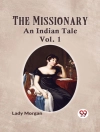An unexpected visitor called Mayerling comes in through Hercule Poirot’s bedroom and collapses on the floor. The only clue to what he wants is his repeating Poirot’s name and address and writing the number 4, many times. When Hastings jokingly calls it ‘The Mystery of the Big Four, ‘ the man begins speaking about an international crime cartel of that name. He describes the four leaders: Number 1 is a Chinese political mastermind named Li Chang Yen; Number 2 is probably American; Number 3 is a Frenchwoman; and Number 4 is known only as ‘the Destroyer.’ The man dies soon after and Poirot and Hastings go off on the trail of the Big Four.
In 1926 Christie was already deeply affected by the death of her mother earlier in the year and the breakdown of her marriage to Archibald Christie. Her brother-in-law, Campbell Christie, suggested that, rather than undergo the strain of composing a completely new novel, Christie should merely compile her most recent series of Poirot stories into a full length book. Campbell helped her revise the stories, which had been written for Sketch magazine, into a more coherent form for book publication.
The book was published a few weeks after the disappearance and reappearance of Christie. The resulting publicity over her name caused the new novel to become a sales hit. Sales were good enough to more than double the success of The Murder of Roger Ackroyd. It sold despite not being a traditional murder mystery, being a tale of international intrigue and espionage, and opening the possibility of more spy fiction from Christie.












